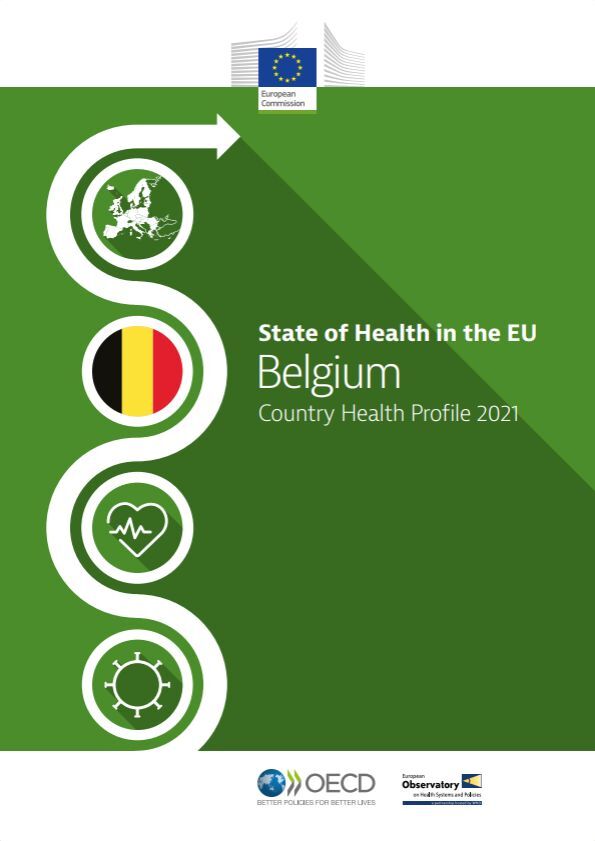Life expectancy in Belgium remains slightly above the EU average, but it temporarily fell sharply in 2020 because of deaths due to Covid-19.
While the Belgian health system provides good access to high-quality care, the Covid-19 pandemic highlighted important challenges with prevention and public health, the health workforce and quality of care in long-term care facilities for older people. The pandemic stimulated many innovative practices in Belgium that could be expanded to build a more resilient healthcare system.
Belgium’s health status
Life expectancy in Belgium increased more than the EU average between 2010 and 2019, but fell by more than a year in 2020 because of deaths due to Covid-19. About 60% of the Covid-19 deaths in 2020 were among residents in long-term care facilities. As in many other countries, the mental health of many young people and adults in Belgium deteriorated greatly during the pandemic, with reports of anxiety and depression reaching much higher levels than in previous years.
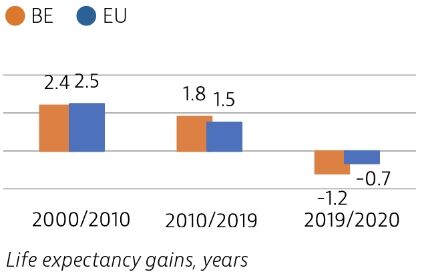
Risk factors
Risk factors for health are major drivers of ill health and mortality in Belgium. While tobacco consumption has substantially decreased over the past two decades, 15% of adults were daily smokers in 2018. Nearly 30% of adults reported regular heavy alcohol consumption in 2018, a rate well above the EU average. About 16% of adults were obese in 2018, close to the EU average, but up from 12% in 2001. Overweight and obesity among 15-year-old adolescents have also increased to 17% in 2018, up from 11% in 2002.
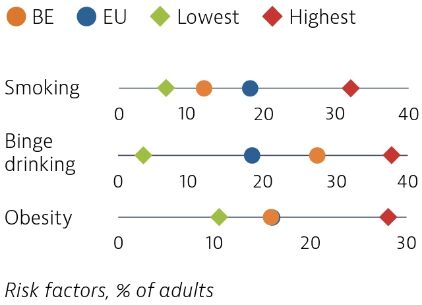
Belgium’s health system
Health spending per capita increased slowly between 2008 and 2019 and remains higher than the EU average. In 2019, health spending accounted for 10.7% of GDP, up from 9.6% in 2008, and also a higher share than the current EU average (9.9%). Public spending accounted for 77% of overall health spending – slightly less than the EU average of 80%.
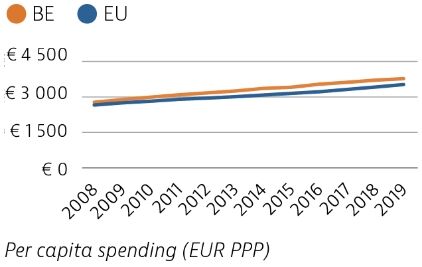
Effectiveness
Avoidable mortality was slightly lower than the EU average before the pandemic, but higher than in many other western EU countries. This suggests that more could be done to save the lives of people through health promotion and a reduction of risk factors and through better healthcare.

Accessibility
Although access to healthcare in Belgium is generally good, the Covid-19 pandemic significantly affected access to care in 2020: 22% reported forgone care during the first 12 months of the pandemic, which is close to the EU average of 21%. Growing use of teleconsultations helped maintain access to care during the pandemic.
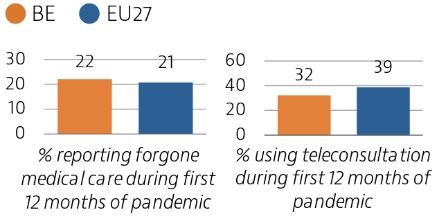
Resilience
Belgium was among the EU countries hardest hit by the Covid-19 pandemic in numbers of cases and deaths relative to its population size, particularly during the first wave. Belgium accelerated its vaccination campaign in the first half of 2021. By the end of August 2021, 70% of the population had received two doses (or equivalent) of a Covid-19 vaccine.
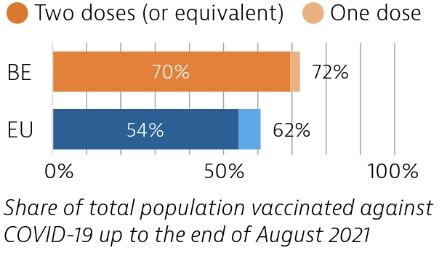
OECD/European Observatory on Health Systems and Policies (2021), Belgium: Country Health Profile 2021, State of Health in the EU, OECD Publishing, Paris/European Observatory on Health Systems and Policies, Brussels.









